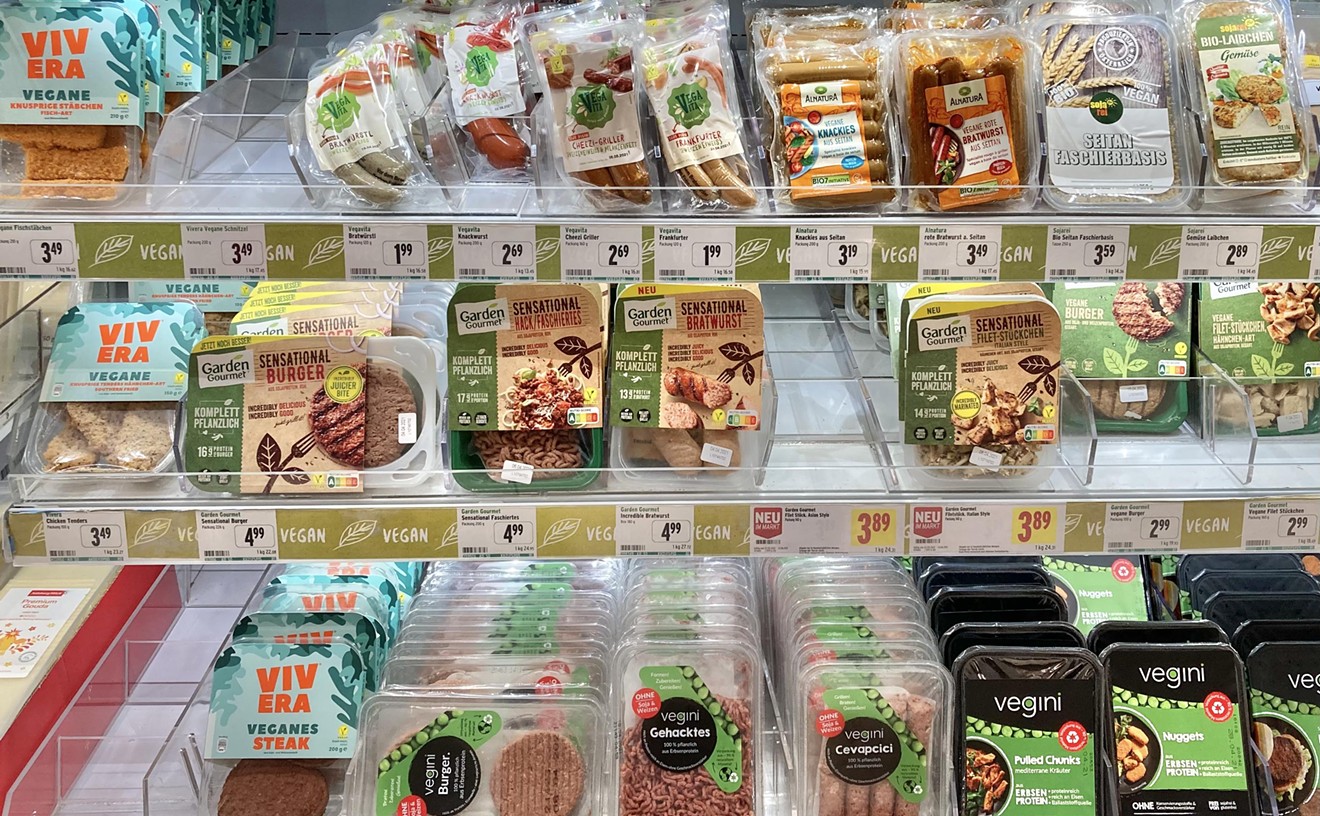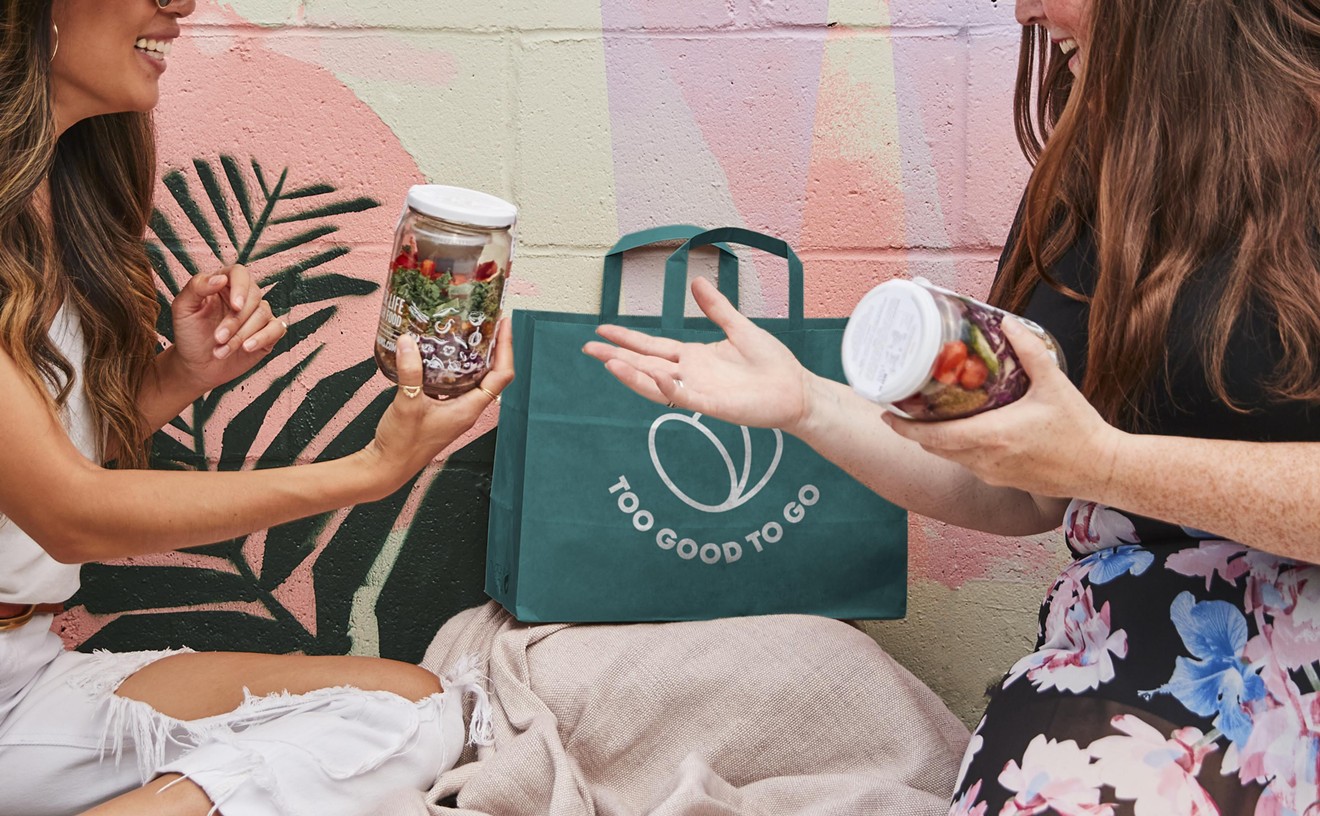Welcome to Chow Bella's Bites & Dishes, where Valley chefs and restaurateurs respond to a question New Times food critic Laura Hahnefeld has on her mind. Have a question you'd like to ask? E-mail [email protected]. Miss a question? Go here.
The organic food industry continues to grow, and many us, for a number of reasons, continue to seek out and pay more for foods labeled as organic.
But a new Stanford University study has found little evidence that organic foods are healthier for us than non-organic foods. So what gives?
NPR reports that the Stanford study found there was less pesticide contamination on organic produce, but that the authors of the study say that fact doesn't matter due to conventionally grown food not exceeding the "allowable limits of pesticide residue set by federal regulations."
Is there a notable difference between organic and non-organic food? I asked Valley chefs and restaurateurs to respond to this question, and this is what they had to say:
Chef Jacques Qualin, J&G Steakhouse
I am not convinced by the new reports that are out. What's better for your health: a vegetable grown with fertilizer and sprayed with pesticide or one that is grown without? I've seen farmers using lady bugs to fight insects as an alternative to pesticide, and have seen people like Bob McClendon pull out and destroy an entire crop because it was not up to his standards. Bottom line: I'd prefer to eat organic as much as I can.
Michael Rusconi Chef and Owner, Rusconi's American Kitchen
There has to be a link between food that's been genetically altered and the diseases that have become more prevalent the last 10 or 15 years. I try to buy and cook organic. The problem is that not everyone wants to pay the cost of eating organic. In Arizona it's difficult to always purchase organic food, especially local -- our growing season doesn't support it well -- but it's getting much easier to buy organic at a fair price.
Lisa Khnanisho Owner, Tryst Café
Those that are more organically driven aren't debating if organic versus non-organic produce, for example, has the same vitamin content. They are concerned with what the pesticides, additives, and growth hormones are doing to their bodies.
Joe Johnston, Owner, Joe's Real BBQ, Joe's Fresh Farm Grill, Liberty Market, Agritopia
Organic production is preferable for the health of those involved with the growing process, reduces risks of pesticide residues and pathogens, and is better for the environment. Studies go both ways on whether nutrients and micro-nutrients are enhanced. Even so, organic was the way everyone grew crops prior to the 1900's and our bodies were adapted to crops grown that way.
Brent Shinyeda, General Manager BLD Chandler
The recent articles simply state that there is little difference in the nutrient values of the foods. They don't dispute that non-organic vegetables have higher pesticide levels, that organic farming is better for the land, or that organic fruits and vegetables taste better. They only looked at one aspect of the organic versus non-organic debate.
Bernie Kantak Chef and Partner, Citizen Public House
Nutritionally speaking they are comparable, but when you take into consideration the use of pesticides, additives, growth hormones, etc. there is reason for concern. Organically labeled items may also contain higher amounts of sugar, salt, fat, or calories. One has to look at things on an item to item basis. I eat what makes me happy. At the end of the day, it comes down to moderation.
Chef Andrea Volpi Local Bistro
Organic arugula does not use pesticides or any other chemical component in the processing, which makes organic arugula a healthier choice. When food is prepared with chemicals and preservatives, it tends to lose a lot of the natural nutrients and vitamins that are beneficial to our bodies. When you avoid these synthetic processes, the natural benefits are far greater for us.
Chef Jeremy Pacheco, Lon's at the Hermosa
I have not heard how the use of pesticides affects our health and environment. There also has been little said on the effects of hormones and antibiotics. The antibiotics used are potentially causing larger problems down the road. Something has to be said about the freshness of local product (many are organic), which makes a big difference. The product tastes better, lasts longer, and supports our small scale farmers.
Josh Hebert Owner and Chef, Posh
Usually produce that is organic is picked locally and ripe at the peak of its flavor. As far as pesticides go, I don't know what the final concentration is in the final product, but it can't be unhealthy to avoid dangerous things.
Romeo Taus, Chef and Owner, Romeo's Euro Cafe
The studies show that it doesn't matter that conventional foods have higher pesticide, herbicide, and insecticide levels because they don't "exceed legal limits." I take issue with that. In our business we are concerned with the peak of ripeness (taste). That is why we nurture relationships with the local farmers and ranchers.
Trish Clark, Manager Bungalow Bar & Grill
I think that there is a difference health-wise. The pesticide residue is dangerous to pregnant women so why would the rest of us want to eat it? Organic produce has less residue. I know that personally they often taste better when organic, but the fewer chemicals the better.










